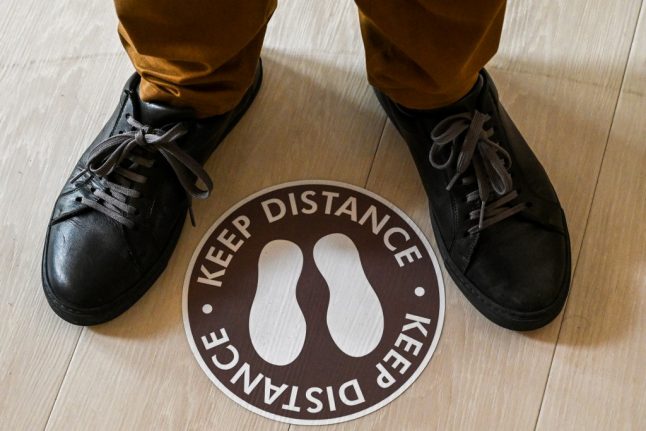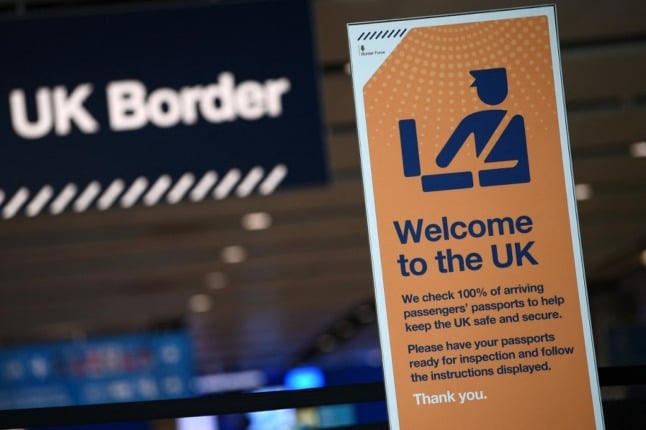
HEALTH
Italy extends Covid-19 emergency measures until July 31st
Italy's current emergency rules aimed at slowing the spread of Covid-19 will remain in place until at least the end of July, after the government signed off on an extension to the latest emergency decree.
Published: 15 July 2020 10:01 CEST

A sticker on the floor of a Rome hotel advises visitors to keep their distance. Photo: AFP
Prime Minister Giuseppe Conte and Health Minister Roberto Speranza signed a bill late on Tuesday extending the current rules provided under the so-called relaunch decree until July 31st.
The extension was approved by the Senate with 154 votes in favour and 129 against.
It obliges the government to “extend the preventive measures provided for by the Prime Minister's decree of June 11th, and to strengthen the monitoring of arrivals from non-Schengen countries,” Italian media reports.
The emergency phase “has not passed”, Speranza said in an address to the Senate.
“We must not underestimate the pandemic risk. The circulation of the virus is accelerating and it is not losing strength”.
“There will always be some risk without a vaccine,” the minister added.

Italian Health Minister Roberto Speranza. File photo: AFP
“Today worldwide 13 million people have been infected and half a million have died,” he said. “It is evident that we cannot lower our guard, and we must not be divided about this.”
“There is debate within the scientific community but no one says it is not necessary to wear face masks, keep one's distance or wash hands”.
The current measures in place include the obligation to wear face masks on public transport and in shops, restaurants, public offices, hospitals, and workplaces where it is not possible for people to keep at least one metre apart at all times.
Travel restrictions
The extension also covers current restrictions on travel to and from Italy, Speranza confrmed.
He said the government was sticking to its “prudent line” on arrivals from outside Europe after several outbreaks in Italy reportedly stemming from imported cases.
READ ALSO:
“We must not go back on the prevention measures in order to reignite our economy,” Speranza said. “The sacrifices made cannot have been in vain.”
“Today there is a ban on arrivals and transit from 13 countries. We will constantly update this list and the 14-day quarantine remains for all arrivals from extra-European countries.
(For more information, please see this complete guide to exactly who can travel to Italy right now, in a separate article.)
“We are in danger of importing the novel coronavirus from citizens who come from abroad or Italian citizens returning home.”
He added that the government is “also paying maximum attention to migrant landings, with a period of quarantine,” after reports of some migrants arriving in southern Italy recently testing positive for the virus.
Speranza also stressed that the government has not yet made a final decision on extending the coronavirus state of emergency beyond the end of July, amid reports of it potentially being extended until the end of October.
Url copied to clipboard!


 Please whitelist us to continue reading.
Please whitelist us to continue reading.
Member comments